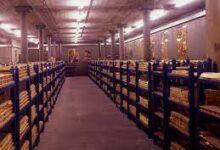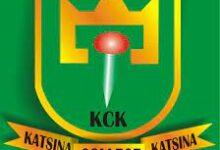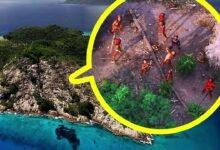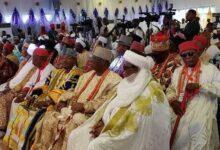History Of The Federal Capital Territory, Abuja
According to history, the land we all know to be Nigeria’s federal capital territory, Abuja was the south western part of the ancient kingdom of Zazzau now called Zaria.
The name “Abuja” was derived from Abu Ja, Muhammadu Makau’s brother who happened to be the last Hausa ruler of Zaria. Following the defeat he met hands of the Fulanis, Muhammadu Makau’s fled Zaria and settled in the land known as Abuja today.
👉 Relocate to Canada Today!
Live, Study and Work in Canada. No Payment is Required! Hurry Now click here to Apply >> Immigrate to Canada
In 1825, Muhammadu Makau was succeeded by his brother Abu Ja as the 62nd king of Zaria. Makau later left Zaria after being defeated by the Fulani and went ahead to settle in the area now known today as Abuja. In 1825 his brother Abu Ja succeeded him as the 62nd King of Zaria.
The full name of Abu Ja was Abubakar which was later shortened to “Abu” for reasons best known to them while the name Ja (means red or fair in Hausa) was given to him because he was light in complexion. Hence he was addressed as “Abu the fair one”.
Although, other sources claim that the name “Ja” was derived from the last name of Abubakar’s father which was “Jatau”).
Upon ascension as the ruler of Zaria, Abu Ja later built a new capital for his kingdom and named it “Abuja” and has remained like that till this day. Abuja then became a major commercial center where goods were exchanged by long distance traders.
In 1902, British colonial army occupied Abuja and reorganized the kingdoms into emirates (Arabic meaning of kingdom) until 1975.
In August 1975, the then Federal Military Government under Late General Murtala Muhammed began to consider the need for a new federal capital and he convened a panel of experts led by Honourable Justice T.A. Aguda, to recommend a suitable alternative location.
Areas like Okene, Markurdi, Auchi, among others were considered and factors for the change of capital from Lagos to Abuja includes social/economic factors, security, central location, and neutrality.
The Federal military government ordered the Emir of Abuja at the time, Altai Suleiman Bara, to approve new districts to Abuja to become the new capital.
👉 Relocate to Canada Today!
Live, Study and Work in Canada. No Payment is Required! Hurry Now click here to Apply >> Immigrate to CanadaAt the end, the Abuja in Niger State contributed 80 percent of the land of the territory; the then Plateau State (now Nassarawa State) contributed 16 percent of the south east territory while Kwara State (now Kogi State) contributed about 4 percent of the south—west territory.
After the approval, the Emirate had no choice than to give up the name Abuja for the Federal Capital Territory of Nigeria
According to tradition, the original inhabitants of the region lived at the base of the rock for centuries without being conquered hence; they were called the Asoros (Aso Koro) which means people of victory. The rock served as a refuge and a mystical source of strength.
Later on, the term Aso Rock increasingly referred not only to the physical structure of the most imposing rock in the area, but became the symbol of government power and country, Nigeria.
The 1979 master plan made provision for Abuja to be developed in four phases. In 2010, the population of Abuja was estimated to about 3 million and a maximum population of 4 million in few years time.
The new Abuja reveals a beautiful city with nearly the entire Phase 1 development has been completed and it includes the following: the Central Business District, the Three Arms Zone (presidency, National Assembly and Supreme Court as well as the Maitama, Wuse, Garki and Asokoro residential and business districts.
The Phase 1 area of the city is divided into five (5) districts; the Central, Asokoro, Garki, Wuse and Maitama. Furthermore, the Phase 2 has five districts namely; Kado, Durumi, Gudu, Utako and Jabi while the Phase 3 has 4 districts; Mabuchi, Katampe, Wuye and Gwarimpa. There are also five suburban districts, which are Gwagwalada, Kubwa, Nyanya, Karu and Jukwoyi
In terms of location, The Federal Capital Territory (FCT), is located almost at the geographical centre of Nigeria. Abuja is also the federal capital of Nigeria, having been moved from Lagos on December, 12 1991.
As it stands, Abuja is bound on the east by Nasarawa State, on south by Niger, Kogi and Nasarawa states, west by Niger State, and on the north by Niger and Kogi states.
With six (6) area councils namely Abuja Municipal, Gwagwalada, Kuje, Abaji, Bwari, and Kwali, the Federal Capital Territory, ( FCT) boast of 1,405,201 residents according to the 2006 national population census result.
The largest indigenous group in Abuja are the Gbabyi (also known as the Gwari). The next largest indigenous group are the Koro. Smaller indigenous groups also inhabit the area, such as the Gade, Egbura, Gwandara, Bassa and the Gana gana.
The federal capital territory, Abuja has lived up to expectation as the nation’s capital. The planned structure of the city is a joy to behold. Little wonder it serves as home to embassies of most European countries, the headquarters and military arm of the Economic Community of West African States (ECOWAS) and ECOMOG respectively and also the Regional Headquarters of the Organisation of Oil Producing and Exporting Countries (OPEC)
Being centrally located, Abuja is blessed with a mix of agricultural produce such as yams, cassava, maize and plantains, sorghum, guinea corn and rice.
Mineral resources are also not left out. Abuja has proven to have deposits of various mineral resources like marble, tin, mica, clay, wolfromite, tantalite and talc.
Since 1976 till date, Abuja has had 16 ministers. They are as follows:
a. Mobolaji Ajose-Adeogun 1976–1979
b. John Jatau Kadiya, 1979–1982;
c. Iro Abubakar Dan Musa 1982–1983;
d. Haliru Dantoro 1983–1984;
e. Mamman Jiya Vatsa 1984–1985;
f. Hamza Abdullahi 1986–1989;
g. Gado Nasko 1989–1993;
h. Jeremiah Timbut Useni 1993–1998;
i. Mamman Kontagora 1998–1999;
j. Ibrahim Bonu 1999–2001;
k. Mohammed Abba Gana 2001–2003;
l. Nasir Ahmad el-Rufai 2003–2007;
m. Aliyu Modibo 2007–2008;
n. Adamu Aliero 2008–2010;
o. Bala Abdulkadir Mohammed 2010–2015;
p. Mohammed Bello 2015–till date
Business opportunities is open to business minded people as well as various tourist attractions like Abuja Amusement Park, Resort located at Man-made Zone 1, Wuse, others include:
a. Abuja Gardens, Central Resort/man-made Area
b. Abuja Zoological Garden, Zoo/Man-made Area 1, Garki
c. ECOWAS Secretariat Man-made
d. Women Development Resort/Man-made Centre
e. Abuja Plant Nursery Physical/Man- made
f. Aso Rock Physical/Natural
g. Usman Dam Man-made
h. IBB Golf Course Sports Tourism
i. Jabi Dam and Holiday Man-made/Resort Resort.







I am writing a paper on the city of Abuja and i found your research very enriching and educative not just to the paper but my awareness of the origin of Abuja city. Thank you educating teeming number of us.
Your welcome. We are happy the article was useful to you.